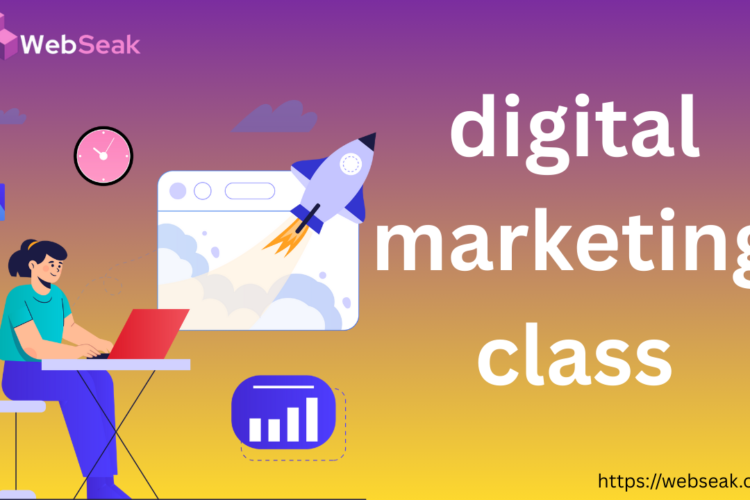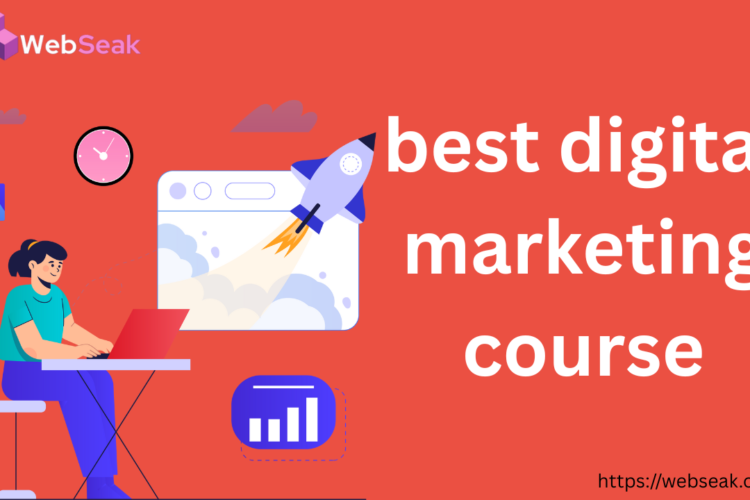
In the world of online retail, simply having an ecommerce website is not enough. To stand out in a competitive marketplace and achieve sustained growth, businesses must invest in smart and strategic ecommerce digital marketing. From attracting potential buyers to converting them into loyal customers, every step of the journey requires focused effort and digital expertise.
At Webseak, we specialize in helping ecommerce businesses navigate the digital marketing landscape with clarity and confidence. This comprehensive guide will walk you through the essential strategies, tools, and best practices for ecommerce digital marketing that drive results.
Table of Contents
What is Ecommerce Digital Marketing?
Ecommerce digital marketing refers to the use of online marketing strategies and channels to promote and grow an online store. These strategies aim to:
- Increase website traffic
- Improve product visibility
- Drive conversions and sales
- Enhance customer loyalty
Whether you are selling fashion apparel, tech gadgets, or handmade crafts, ecommerce marketing plays a crucial role in building your brand and growing revenue.
Why Ecommerce Businesses Must Invest in Digital Marketing?
Digital marketing is the engine that powers online stores. Without it, even the best products can remain invisible to potential buyers. Here is why ecommerce businesses cannot afford to ignore digital marketing:
- Reach a Global Audience – Promote your products to customers beyond your local area
- Cost Effective Advertising – Reach targeted users without spending a fortune
- Trackable Results – Monitor campaign performance and optimize in real time
- Customer Engagement – Communicate with your audience through social media, email, and content
- Brand Building – Establish a strong online identity that earns trust and loyalty
Key Ecommerce Digital Marketing Strategies
To grow your ecommerce business, it is important to implement a well rounded digital marketing strategy. Below are the most effective tactics used by leading online stores.
1. Search Engine Optimisation SEO
SEO helps your online store rank higher in search engine results for relevant product and category keywords. A strong SEO strategy brings consistent and organic traffic to your site.
Key ecommerce SEO tasks include:
- Keyword research for product titles and descriptions
- Optimising meta tags and URLs
- Creating search friendly product categories
- Improving site speed and mobile usability
- Building backlinks from high authority websites
SEO takes time to show results but delivers long term value and high quality visitors.
2. Pay Per Click PPC Advertising
PPC ads on platforms like Google Ads and Bing help you drive instant traffic and conversions. Ecommerce stores often use shopping ads and display campaigns to highlight products.
Popular PPC strategies include:
- Google Shopping ads for specific product visibility
- Search ads targeting buying intent keywords
- Remarketing to users who abandoned carts
- Display ads for brand awareness
- Dynamic product ads on search and social platforms
PPC gives immediate exposure and measurable results, making it ideal for sales driven campaigns.
3. Social Media Marketing
Social media platforms are powerful tools for product discovery, brand awareness, and customer engagement. They help build community and drive traffic to your store.
Social media strategies for ecommerce include:
- Product promotions on Instagram and Facebook
- User generated content from happy customers
- Reels and video content to showcase product use
- Social contests and giveaways
- Targeted ads to reach new shoppers
A consistent presence on platforms like Instagram, Pinterest, and TikTok can significantly boost ecommerce growth.
4. Email Marketing
Email is one of the highest converting channels for ecommerce businesses. It is personal, direct, and highly effective in nurturing leads and retaining customers.
Email marketing for ecommerce includes:
- Welcome series for new subscribers
- Abandoned cart recovery emails
- Product recommendations and cross sells
- Exclusive offers and discount codes
- Seasonal and holiday promotions
Automation tools make it easy to deliver timely and relevant messages to every segment of your audience.
5. Content Marketing
Content marketing builds trust and improves SEO. It also educates customers and helps them make informed purchase decisions.
Types of content to create:
- Product guides and how to articles
- Blog posts on industry trends
- Buying guides and comparisons
- Video demonstrations and testimonials
- FAQs and support content
Well crafted content supports your marketing funnel and encourages repeat visits.
6. Influencer Marketing
Partnering with influencers in your niche can help boost credibility and expand your reach. Influencers introduce your products to loyal and engaged audiences.
Influencer marketing tips:
- Choose influencers who align with your brand values
- Prioritise engagement over follower count
- Provide product samples for authentic reviews
- Track performance with discount codes and affiliate links
- Build long term relationships for ongoing promotions
Influencers bring a human element to your brand that resonates with online shoppers.
7. Conversion Rate Optimisation CRO
Getting traffic to your site is only part of the equation. To maximize sales, you need to optimize the customer journey and reduce friction points.
CRO techniques for ecommerce include:
- Clear and prominent call to action buttons
- High quality product images and videos
- Trust signals like reviews and ratings
- Easy navigation and mobile friendly design
- Simplified checkout process
Even small improvements in conversion rate can significantly impact revenue.
Measuring Ecommerce Marketing Performance
To know what is working and what needs improvement, you must track performance using analytics tools.
Key ecommerce metrics to monitor:
- Website traffic and source of traffic
- Conversion rate and average order value
- Bounce rate and time on site
- Cart abandonment rate
- Return on ad spend ROAS
Use platforms like Google Analytics, Meta Ads Manager, and Shopify Analytics for real time insights.
Choosing the Right Ecommerce Marketing Agency
Partnering with a digital marketing agency can accelerate growth and save you time. But choosing the right agency is essential.
Qualities to look for:
- Proven track record with ecommerce brands
- Experience with platforms like Shopify or WooCommerce
- Transparent pricing and reporting
- In house team of SEO, PPC, and content experts
- Ability to scale and support growth
An agency like Webseak can help you craft and execute a results driven strategy tailored to your goals.
Final Thoughts from Webseak
Ecommerce digital marketing is the backbone of any successful online business. With the right mix of SEO, advertising, social media, email campaigns, and content marketing, you can turn your store into a high performing sales ma


